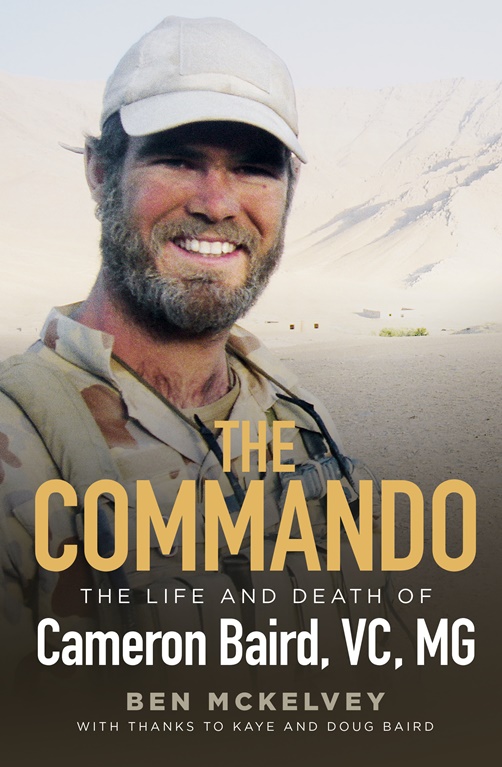Written posthumously about the life of Corporal Cameron Baird (1981-2013), this book aims to provide a snapshot of the Australian man behind his well-known heroics as a soldier. Despite relying heavily on the secondary accounts of the people who knew him inside and outside of his life in the Australian Defence Force, Sydney journalist and author Ben Mckelvey does well to compile these insights and factual recounts into an engaging narrative of the man behind the heroics.

Mckelvey first sets out to describe Corporal Baird as a modern-day Adonis; a classic war hero defined by unmatched physical capability and indiscriminate and unquestionable loyalty. However, this is done only to complement Mckelvey’s primary aim of exposing the man behind the attributes.
This is done with early reference to Baird’s stellar prospects for a career in football, had he not chosen to follow his ‘destiny’ as Mckelvey puts it to become an Australian soldier. Despite an obvious focus on his military heroics, Mckelvey also delves into Baird’s own personal struggles amidst his professional career. Clearly, the aim here is to humanise his character, adding to the character’s relatability and inspirational value to his tale.
The rest of the book strikes a great balance between personal recollections and recounts of Baird’s personal life and very ‘on the ground’ tales of military operations. This type of writing and recounting makes the book accessible to a wide audience. Those with a military background with interest in the fighting that occurred in Afghanistan are provided with an intimate and detailed depiction of the ‘front line’. It could also serve as an engaging narrative for the general reader.
The novel refreshingly deviates from constant focus on Baird’s life by providing a macro point of view on the surrounding circumstances and events that engendered the vague, yet polarising ‘war on terror’. However, at certain stages of recounting Baird’s experiences in Iraq and Afghanistan, McKelvey’s writing eschews a very overt aura of patriotism. This works to create a noticeably subjective viewpoint that fails to mention the many flaws of the conflict of which Baird was involved in. By writing in this style, McKelvey inadvertently glorifies death counts of enemy combatants, and validates statements made by Baird or his counterparts, that could otherwise be deemed insensitive or offensive. For any expert or avid follower with a holistic view of these conflicts, this type of writing can get frustrating.
Despite this one blemish, the integration of Baird’s personal and military life within the geo-political context of the conflicts, does well to garner a sincere appreciation of the sometimes-unnecessary nature of death in conflict. The book could have been a true triumph within the discourse of Australian Military History, had it more eloquently acknowledged the controversies involved in the wars in Afghanistan and Iraq and provided a more holistic perspective.
Reviewed For RUSIV by Michael Hili, May 2018
Contact Royal United Services Institute about this article.






